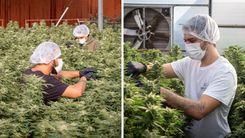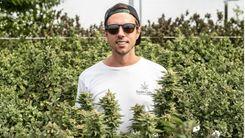Psychedelics in Brazil: advances, challenges, and what you need to know about regulation
Recent study gathers 28 scientific articles and points out the main bioethical advances and challenges in the therapeutic use of psychedelics in Brazil, highlighting the need for regulation, safety, informed consent, and fair access to therapies
Published on 08/13/2025

Illustrative Image: Canva Pro
Regulation of psychedelics in Brazil remains quite restricted. The only exception is ayahuasca, authorized for religious and indirectly therapeutic use, following regulation by the National Council on Drug Policies (CONAD) in 2010. Other substances, such as psilocybin, LSD, and MDMA, are classified as controlled by the National Health Surveillance Agency (Anvisa), preventing their regular clinical use. However, there is a growing interest and research on the therapeutic potential of these drugs, with expectations of regulatory changes for psychiatric treatments.
Recent bibliographic research highlights bioethics and safety
A study published in July 2024 analyzed 28 national and international scientific articles to understand the bioethical aspects of the therapeutic use of psychedelics. Based on premises of Latin American bioethics, the research divided the results into three major axes: freedom of scientific investigation; consent, autonomy, and respect for vulnerability; and equality, justice, and equity in access.
The study reinforces that bioethical issues are central to ensuring that the use of psychedelics is safe, accessible, and beneficial, protecting potential patients from harm.
Resumption of scientific research and technological advances
Scientific interest in psychedelics has been growing since the beginning of the century, after years of stigma associated with the “war on drugs.” Current research uses advanced technologies, such as neuroimaging, and rigorous methods, including randomized controlled studies, considered feasible for this area.
To avoid ethical and regulatory barriers, research focuses on less stigmatized substances, such as psilocybin, following strict safety protocols to prevent adverse effects. The results are promising in the treatment of conditions such as anxiety, depression, migraines, and obsessive-compulsive disorder.
Informed consent and protection of vulnerability
The study highlights that no research or intervention should take place without the informed and free consent of the participants, who should be able to revoke it at any time. Autonomy is fundamental, but it must be recognized that mental health, socioeconomic, and educational conditions can affect the capacity for consent.
In the case of psychedelics, the challenge is greater: the effects vary widely and can lead to increased suggestibility states, requiring extra care in the information and consent process. Furthermore, it is essential to monitor participants during and after the use of substances to ensure safety and well-being.
Specialized monitoring: the role of therapists
In clinical contexts, psychological support during the use of psychedelics is mandatory, although there is still debate about the best way to provide it. Therapists must be specially trained to conduct these sessions, respecting the patient's integrity and avoiding undue interference, especially given the susceptibility to suggestion.
The therapist-patient relationship requires care with power dynamics and diversity, especially with underrepresented groups, such as the Black and LGBTQ+ populations. Proper training of professionals is seen as a key point for the safe advancement of therapies.
Challenges of access and social justice
Despite the effectiveness and speed of psychedelic treatments indicated by studies, access is still restricted. The traditional clinical model requires the presence of specialized teams, which increases costs and limits the availability of treatment, which in Brazil is mainly restricted to ceremonial contexts or scientific research.
Criticism is also directed at the protocol that foresees the simultaneous presence of therapists of different genders, as it reproduces familiar and sexist conceptions and does not consider the diversity and preferences of patients.
The study emphasizes the importance of diversity among therapists and in the psychedelic science movement, currently predominantly composed of white middle-class men, to ensure that the benefits reach everyone.
Perspectives for Brazil in the face of the international scenario
While countries like the United States and Canada advance in the regulation and approval of the therapeutic use of psychedelics. In Brazil, the regulation of psychedelics for medicinal use is still restricted and cautious, advancing mainly through clinical research and judicial decisions that challenge regulatory rigidity.







